Filter by
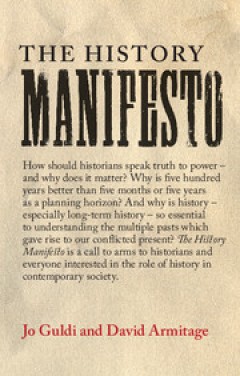
The history manifesto
How should historians speak truth to power – and why does it matter? Why is five hundred years better than five months or five years as a planning horizon? And why is history – especially long-term history – so essential to understanding the multiple pasts which gave rise to our conflicted present? The History Manifesto is a call to arms to historians and everyone interested in the role o…
- Edition
- -
- ISBN/ISSN
- 9781139923880
- Collation
- ix, 165 p. : ill
- Series Title
- -
- Call Number
- 901 GUL t
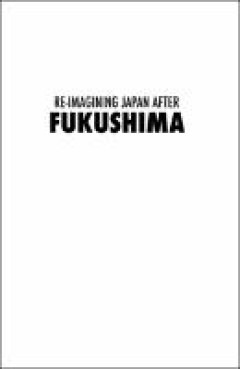
Re-imagining Japan after Fukushima
"The 2011 Tōhoku earthquake, tsunami and Fukushima nuclear disaster (collectively referred to as ‘3.11’, the date of the earthquake), had a lasting impact on Japan’s identity and global image. In its immediate aftermath, mainstream media presented the country as a disciplined, resilient and composed nation, united in the face of a natural disaster. However, 3.11 also drew worldwide atten…
- Edition
- -
- ISBN/ISSN
- 9781760463540
- Collation
- ix, 163 p.
- Series Title
- -
- Call Number
- 952.04 MIH r
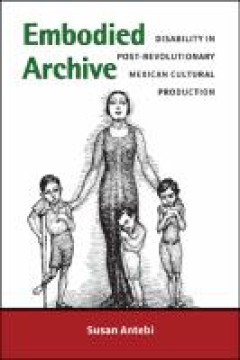
Embodied archive: disability in post-revolutionary Mexican cultural production
"Embodied Archive focuses on perceptions of disability and racial difference in Mexico’s early post-revolutionary period, from the 1920s to the 1940s. In this period, Mexican state-sponsored institutions charged with the education and health of the population sought to strengthen and improve the future of the nation, and to forge a more racially homogeneous sense of collective identity and hi…
- Edition
- -
- ISBN/ISSN
- 9780472902422
- Collation
- 283 p.: ill.
- Series Title
- Corporealities: Discourses Of Disability
- Call Number
- 305.908097209041 ANT e
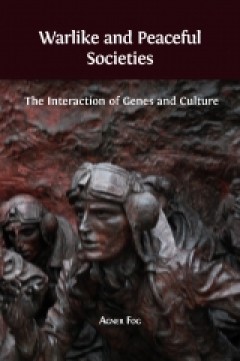
Warlike and peaceful societies : the interaction of genes and culture
Read Agner Fog's introductory post on our blog [...] it presents a valuable overview of the extensive literature on the societal correlates of modern warfare and makes a convincing, and timely, case for the deceptive use of the threat of war by populists or budding dictators. — Carel P. van Schaik, University of Zurich, Adaptive Behaviour (May 2018) https://doi.org/10.1177/105971231877197…
- Edition
- -
- ISBN/ISSN
- 9781783744053
- Collation
- 364p.: colour, ill.
- Series Title
- -
- Call Number
- 303.4 WAR f
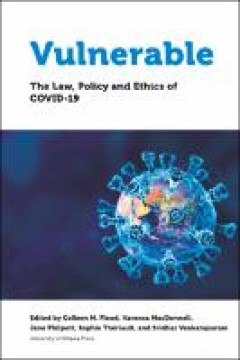
Vulnerable : the law, policy and ethics of COVID-19
Vulnerable examines the vulnerabilities and interconnections brought to light by the pandemic, as well as the legal, ethical and public policy responses. This book exposes the vulnerabilities of individuals, institutions, governance and legal structures, in several countries and worldwide.
- Edition
- -
- ISBN/ISSN
- 9780776636429
- Collation
- xiii, 630 p. : ill
- Series Title
- -
- Call Number
- 362.1962414 FLO a
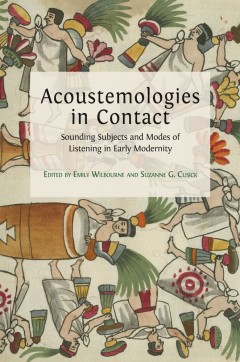
Acoustemologies in contact : sounding subjects and modes of listening in earl…
In this fascinating collection of essays, an international group of scholars explores the sonic consequences of transcultural contact in the early modern period. They examine how cultural configurations of sound impacted communication, comprehension, and the categorisation of people. Addressing questions of identity, difference, sound, and subjectivity in global early modernity, these authors s…
- Edition
- -
- ISBN/ISSN
- 9781800640375
- Collation
- 348p.: col.,ill.
- Series Title
- -
- Call Number
- 534 WIL a
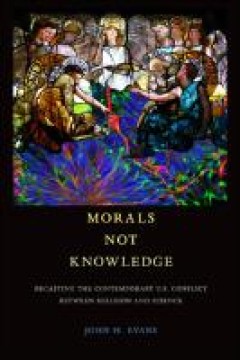
Morals not knowledge : recasting the contemporary U.S. conflict between relig…
In a time when conservative politicians challenge the irrefutability of scientific findings such as climate change, it is more important than ever to understand the conflict at the heart of the “religion vs. science” debates unfolding in the public sphere. In this groundbreaking work, John H. Evans reveals that, with a few limited exceptions, even the most conservative religious Americans a…
- Edition
- -
- ISBN/ISSN
- 9780520969780
- Collation
- vii, 240 p. : ill.
- Series Title
- -
- Call Number
- 645101.0 EVA m
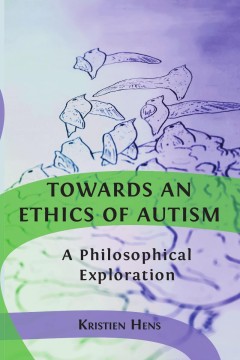
Towards an ethics of autism : a philosophical exploration
What does it mean to say that someone is autistic? Towards an Ethics of Autism is an exploration of this question and many more. In this thoughtful, wide-ranging book, Kristien Hens examines a number of perspectives on autism, including psychiatric, biological, and philosophical, to consider different ways of thinking about autism, as well as its meanings to those who experience it, those who …
- Edition
- -
- ISBN/ISSN
- 9781800642324
- Collation
- ix, 206 p.
- Series Title
- -
- Call Number
- 616.85882 HEN t
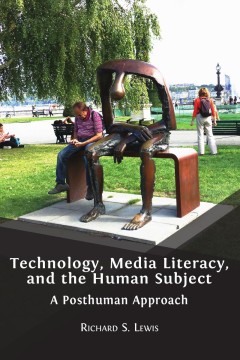
Technology, media literacy, and the human subject: a posthuman approach
What does it mean to be media literate in today’s world? How are we transformed by the many media infrastructures around us? We are immersed in a world mediated by information and communication technologies (ICTs). From hardware like smartphones, smartwatches, and home assistants to software like Facebook, Instagram, Twitter, and Snapchat, our lives have become a complex, interconnected netwo…
- Edition
- -
- ISBN/ISSN
- 9781800641846
- Collation
- x, 247p. : ill.
- Series Title
- -
- Call Number
- 302.23 LEW t
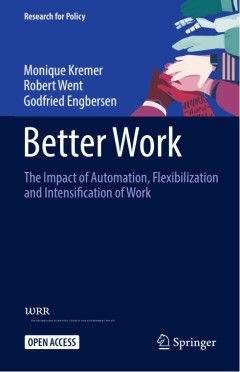
Better work : the impact of automation, flexibilization and intensification o…
This is an Open Access book. How can we make work better? It is an important question, one that the Dutch government, employers’ organizations and trade unions have been grappling with. People work to make money. But work also inspires self-respect, shapes our identity and gives us a sense of belonging – especially when the work we do is good. Good work is essential to prosperity in the bro…
- Edition
- -
- ISBN/ISSN
- 9783030786823
- Collation
- x, 204p. : ill.
- Series Title
- -
- Call Number
- 331 KRE b
 Computer Science, Information & General Works
Computer Science, Information & General Works  Philosophy & Psychology
Philosophy & Psychology  Religion
Religion  Social Sciences
Social Sciences  Language
Language  Pure Science
Pure Science  Applied Sciences
Applied Sciences  Art & Recreation
Art & Recreation  Literature
Literature  History & Geography
History & Geography